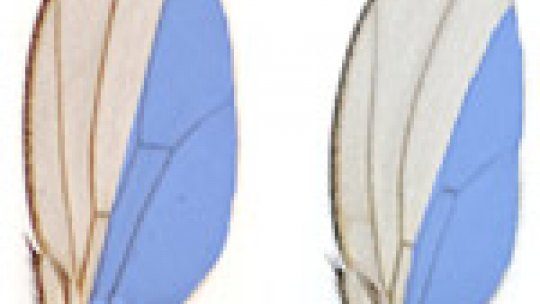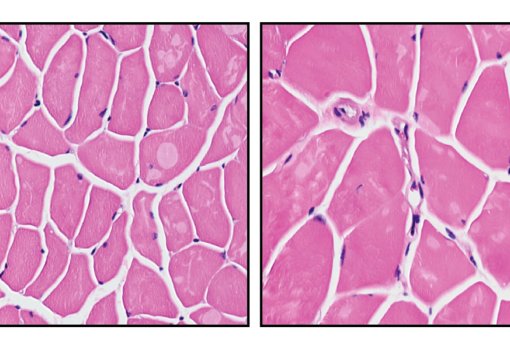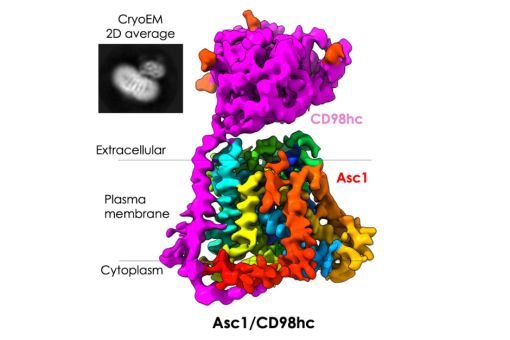Images
Contact

The group led by Marco Milán, researcher at IRB Barcelona, discovers that microRNAs control the levels of the oncoprotein Myc in Drosophila.
In all cancers, whether in kidney, breast, lung, colon, skin or any other tissue, cells show high Myc protein levels. Excess Myc causes cells to multiply in an exaggerated manner, giving rise to the development of tumours. One of the most pressing questions about Myc is how healthy cells keep the expression of this protein in check. In a study using the Drosophila, researchers at the Institute for Research in Biomedicine (IRB Barcelona) headed by ICREA scientist Marco Milán have discovered that the microRNA machinery controls the levels of Myc through the molecule Mei-P26, thereby conferring microRNAs unexpected importance. The study is published this week in EMBO Journal, a scientific journal of high impact in basic biomedical research that belongs to the Nature group.
MicroRNAs (miRNAs) are small molecules that account for less than 1% of the human genome; however, they play a key role in cell function because they have the capacity to disable or modify a great number of genes. High levels of certain miRNAs cause cancer. In previous studies conducted in mice, it was demonstrated that the Myc protein controls the expression levels of miRNAs. Now scientists have discovered in Drosophila that miRNAs affect the levels of Myc. “We propose that there is a finely tuned mechanism by which miRNAs and Myc are mutually controlled”, explains Milán. The researchers suggest that the cell uses this mechanism to maintain optimal levels of miRNA and Myc, indispensable for the proper functioning of the organism, while preventing their becoming dangerous.
Mei-P26, the key component
The researchers discovered this new regulatory mechanism by removing Drosophila’s 150 miRNAs from a developing wing. Without miRNAs, they obtained a tissue with similar characteristics to that attained when Myc is removed: the wing is smaller and the cells are also smaller and do not divide well. “Myc is like an orchestra conductor that guides the growth of tissue, including healthy tissue, and since the wing characteristics in both cases were similar, we thought that the miRNAs and Myc were related; and we were right”, explains Héctor Herranz, post-doc researcher fellow in Milan’s lab and first author of the article.
The dissection of the molecular mechanism revealed that the key piece in the regulation of Myc by miRNAs is Mei-P26, a molecule known to target Myc in mice. Cells lacking miRNAs show increased Mei-P26 levels and decreased Myc expression. “We have closed the circle of this regulatory mechanism, positioning the miRNAs in the diagram”.
Given that miRNAs, Mei-p26 and Myc have homologues in mice and humans, and alterations in the expression of these homologues cause tumours, the researchers propose that this same regulatory mechanism of Myc could be present in higher organisms. Confirmation of this notion would open up new avenues in the study of cancer.
Reference article
The miRNA machinery targets Mei-P26 and regulates Myc proteína levels in the Drosophila wing.
Héctor Herranz, Xin Hong, Lidia Pérez, Ana Ferreira, Daniel Oliveiri, Stephen M Cohen and Marco Milán.
EMBO Journal (2010) doi: 10.1038/emboj.2010.69
About IRB Barcelona
The Institute for Research in Biomedicine (IRB Barcelona) pursues a society free of disease. To this end, it conducts multidisciplinary research of excellence to cure cancer and other diseases linked to ageing. It establishes technology transfer agreements with the pharmaceutical industry and major hospitals to bring research results closer to society, and organises a range of science outreach activities to engage the public in an open dialogue. IRB Barcelona is an international centre that hosts 400 researchers and more than 30 nationalities. Recognised as a Severo Ochoa Centre of Excellence since 2011, IRB Barcelona is a CERCA centre and member of the Barcelona Institute of Science and Technology (BIST).





